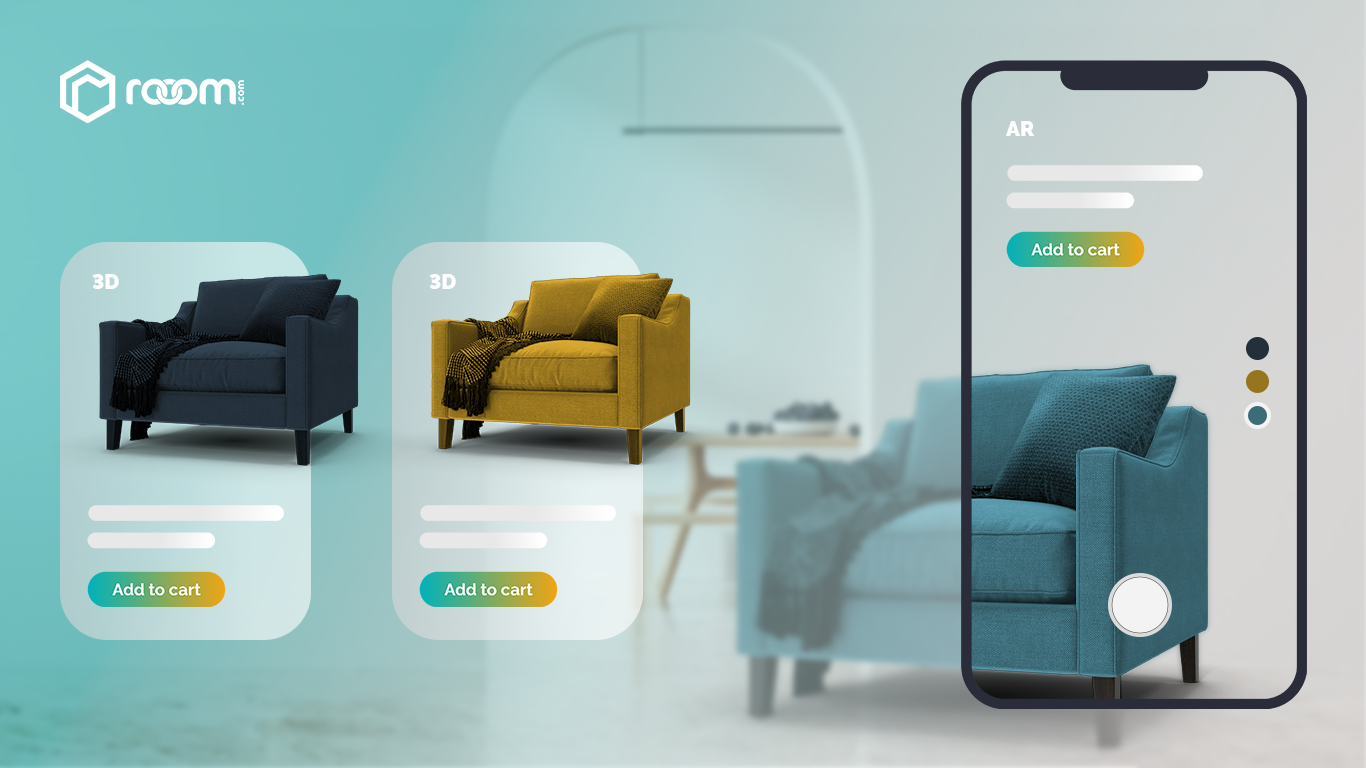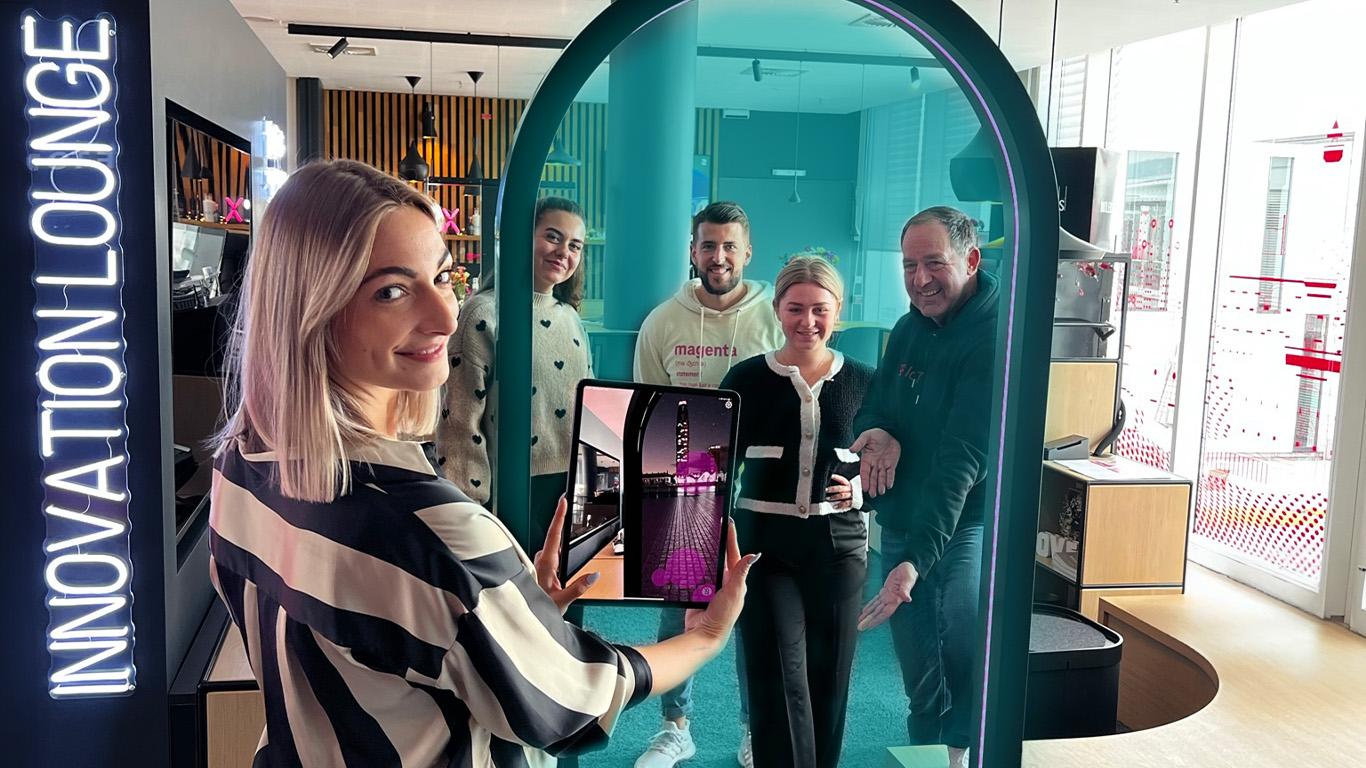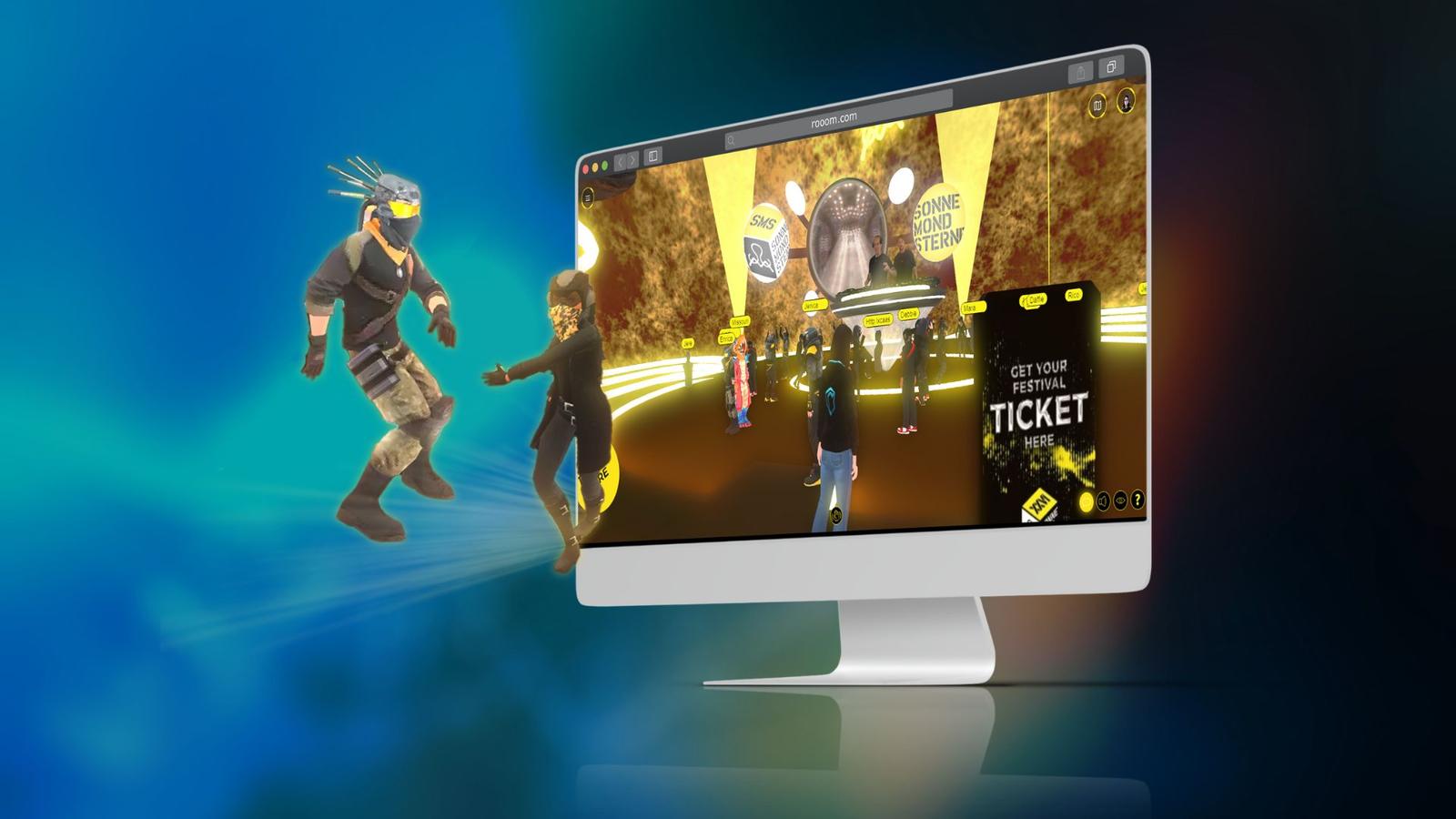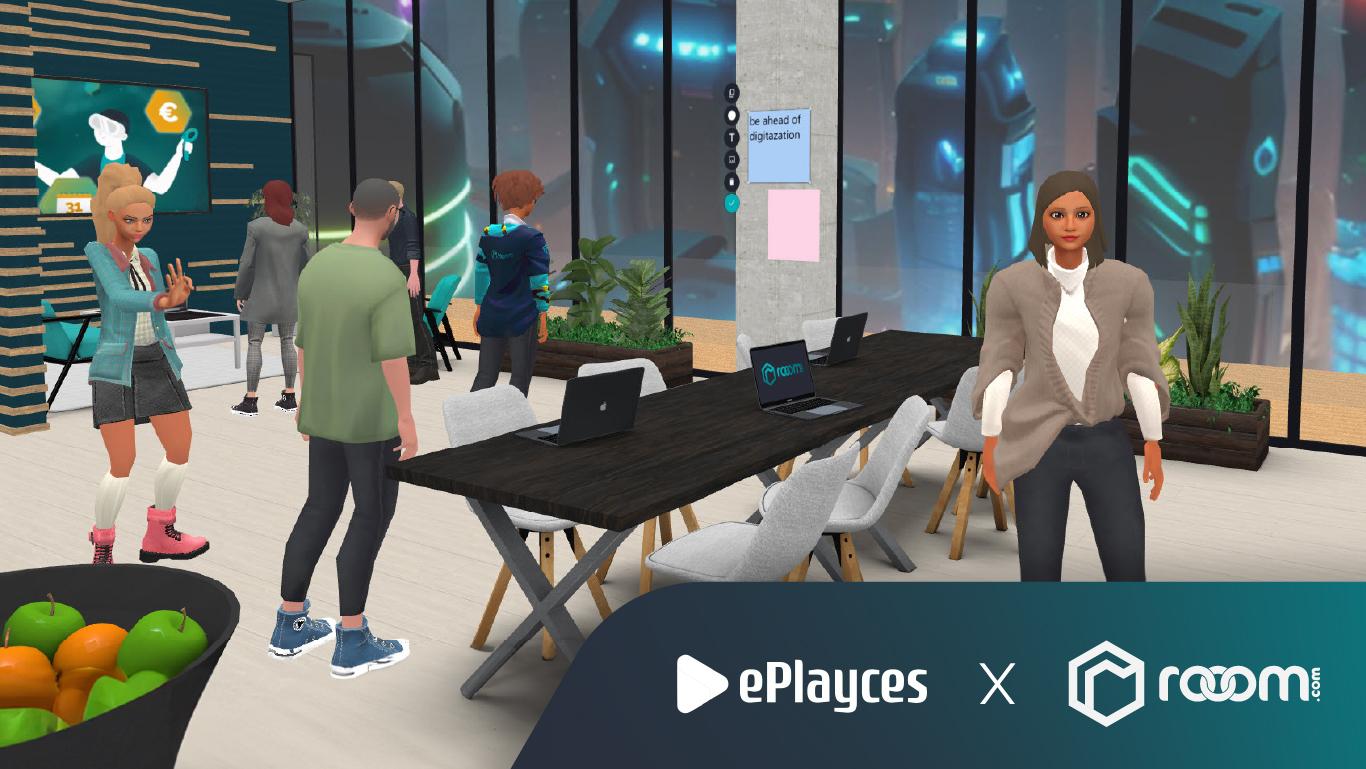Blog
Top Metaverse Use Cases

- How to Metaverse
- Case Studies
- Blog
What is the Metaverse? And if so, how many?
For those still wondering, “What is the Metaverse?” – The Metaverse is by no means just a gimmick or a social network. Instead, it’s more a future version of the internet. 3D experiences and Mixed Reality add a third dimension to the previously two-dimensional web. Online stores become walkable, products can be virtually brought into the living room via AR, avatars and artificial intelligence provide new impulses for digital customer advice. You can convey information more visually and interactively. This does not only open new doors for marketing, but also for education and remote work.
How does the Metaverse work?
The most important information, facts and FAQs about the Metaverse at a glance: Find out how to create your own presence in the Metaverse with our Info Kit.
Mark Zuckerberg’s “meta” is by no means thought of as THE Metaverse. Instead, there are a variety of platforms and providers that companies can use to build a Metaverse presence. Here, 3D, AR and VR form the technological basis. This means that Metaverse content is accessible across a wide range of end devices.

What are the benefits of the Metaverse?
The Metaverse offers tremendous opportunities in the context of digital transformation to improve processes and take marketing to the next level.
The Metaverse will enable companies to bring products and services to life for customers in an entirely new immersive way.
– Collin Croome (“30 Minuten Metaverse”)
Several studies* look at how Metaverse technologies can transform the business world. Those companies that have already integrated Metaverse applications into their strategy have identified the following benefits:
- Increased reach thanks to a new channel for sales and marketing
- Positive effect on the company’s image, especially among younger target groups
- Increased customer loyalty and improved customer satisfaction
- Sales boost
- Improved work processes due to time and cost savings
- Increased productivity and employee satisfaction.
The bottom line is: With the sensible and targeted use of Metaverse tools, corporate goals can be achieved faster and more efficiently.
But how can my company tap into this potential? It is worth taking a look at the “Metaverse as a Service” model, or MaaS for short. The term refers to platforms or IT solutions that enable companies to create Metaverse content themselves. For example 3D environments, virtual tours or interactive product presentations.
What are potential applications of the Metaverse?
A wide variety of industries are already making money with the Metaverse. The market research company Gartner estimates that by 2027 more than 40% of large companies worldwide will use Metaverse projects to increase revenue. But what can such projects look like and where are the added values? We present some examples and best practices:
Retail & E-Commerce
In a survey conducted by ECC Club Cologne, 63% of young consumers believe that more brands and retailers should sell in the Metaverse. Metaverse technologies have the potential to combine realistic customer experiences from brick-and-mortar stores with the convenience of online shopping. Many e-commerce vendors are already taking the opportunity to embed 3D models on product detail pages.
But store frontends themselves can also become even more immersive, moving from 2D websites to walkable, three-dimensional experience stores. This is already a reality for furniture, fashion and toys, for example. Customers can enjoy a three-dimensional experience of the products, try them on and test them out virtually via AR. Lloyd Shoes’ virtual shoe store serves as an example of this.

Education & Learning
Virtual learning spaces, so-called Smart Learning Environments, support independent learning and structured group work. Augmented Reality also comes in handy here to make the otherwise invisible visible.

The 3D environment “Smart Learning Island” with interactive features such as voice chat and avatars enables students at a Zurich university to learn independently in two study groups and can be managed by the teachers themselves using rooom’s MaaS platform. Use cases are not limited to schools and universities – a “Metaverse for learning” can also ensure sustainable knowledge transfer in education and training at the workplace.
Industry 4.0
Digitalization is one of the most important success factors in mechanical engineering and the manufacturing industry. With a combination of 3D visualization, VR and AR, Metaverse applications help to optimize processes in product development, production planning, customer support and employee training.
Marketing and sales can also be boosted by using virtual showrooms, which help to explain complex products in a visually understandable way. Medical technology provider BD uses an interactive Metaverse platform with walkable labs where workflows and equipment are explained to potential customers in a realistic 3D environment.

Events & Networking
According to a study by the business consulting company McKinsey, 78% of people who are already in the Metaverse today are looking at participating in virtual events. 3D spaces can be customized depending on the topic of the event – from trade fairs, conferences and exhibitions to festivals and parties.

Using an event platform, the 3D experience can be enhanced with extensive networking functions or even live streams. Hybrid event formats are also in demand: Deutsche Telekom, for example, was able to complement its presence at the Mobile World Congress 2022 with a 3D experience booth in the Metaverse.
Art & Culture
Metaverse technologies can enrich “real life” experiences with exciting content and offer new ways to make history, culture and nature more tangible.
Virtual content made available on site via an app allows visitors to immerse themselves in times gone by and experience otherwise shy animals up close in 3D – as is the case on the interactive hiking trails in the nature experience region “natura jenensis”. Museums can present their contents in virtual worlds and thus enable a new kind of museum visit. And even art can be presented in the Metaverse by means of 3D exhibitions. Augmented Reality makes it possible to project paintings virtually into the living room at home. On top of that, artworks can even be sold digitally. Thanks to blockchain technology, NFTs guarantee forgery protection for buyers.

Gaming & Entertainment
For gamers, walkable 3D worlds and Virtual Reality are nothing new. With the possibility of interactive experiences, Metaverse spaces offer a completely new dimension for the creative implementation of games.

With Web3D, however, gaming is now possible without installation or a console. With rooomSpaces, for example, a holiday-themed Metaverse Escape Room could be implemented. Players have to solve various tasks in order to save the holidays. Collaborative online games are also great for team events.
Services
The Metaverse offers service providers an additional channel for customer service, for example in the case of insurance, banking or telecommunications. Virtual interaction points using avatars offer new opportunities for sales. 3D hubs can provide customers with information and assistance at home and offer a useful addition to personal consultations. Interactive tutorials, virtual assistants and artificial intelligence (AI) help with the handling of products and take the customer experience to the next level.

How to define a Metaverse strategy?

rooom provides a multi-award winning platform for Enterprise Metaverse Solutions. Our team specializes in 3D experiences for companies in all industries. Augmented and Virtual Reality applications can also be easily implemented with the all-in-one platform. A well-designed Metaverse strategy can help open up new markets, gain competitive advantage, expand brand presence, and save time and money. All of this should always be considered and evaluated in the context of specific business goals and needs. We recommend an individual evaluation to find out which Metaverse technologies and applications make sense for your company. It is also good to launch pilot projects and observe the results before implementing a comprehensive Metaverse strategy. We offer you a platform to foster innovation and creative solutions in your company. Define your goals and start your Metaverse journey with rooom!
What will your Metaverse strategy look like?
Get in touch with our experts! Together we will find out how you can leverage the potential of Metaverse technology for your business model.


















